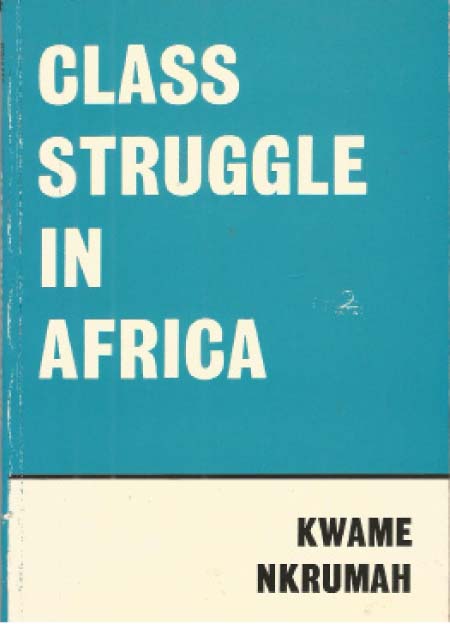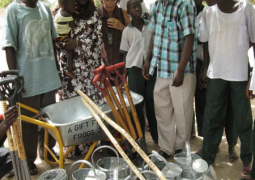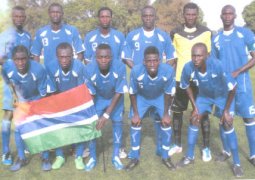
It is exactly 50 years ago today that the late Ghana leader Dr Kwame Nkrumah flew out of China en route to Guinea Conakry to take up the offer of exile which his friend and comrade Sekou Toure had offered him following Nkrumah’s overthrow by the army on February 24 1966. Nkrumah was on a peace mission to Vietnam when the army struck, ending a great era in the annals of African Liberation.
Now bereft of power, Nkrumah stayed in his villa Syli in Conakry having not much to do but to continue his theoretical contributions to African liberation. What he used to do to support the African freedom fighters in terms of logistics and diplomatic support, he now can only do by writing books to share his ideas with the African revolutionaries.
This book Class Struggle is one of nearly a half dozen books which Nkrumah penned while in exile in Conakry. It is divided into 12 chapters, all very short, but all are bombshells of revolutionary strategy to overcome the forces of neo-colonialism and imperialism.
In chapter 1, the great thinker and revolutionary takes the readers down the memory lane of the origins of class in Africa; he asserts that colonialism brought Class in Africa by giving the crumbs to a few educated elite and chiefs who emerged as the exploiter/oppressor class after independence. Pre-colonial Africa was egalitarian: even the emperor depended on the cobbler for a necessary service and therefore respected him. ‘To facilitate exploitation, colonialism hampered social and cultural progress in the colonies,’ he opined (page 15).
Nkrumah continued to discuss the Class and elite phenomenon in the subsequent chapters 2,3,4 and 5. His conclusion is that the post Independence bourgeoisie class was exploitative because it had learnt its lessons very well from the departing colonial rulers.
In chapter 6 and 7, Nkrumah returns to Ghana and gives the soldiers which overthrew him as good examples of a ‘reactionary clique’ among the post independence armed forces which the departing colonial rulers left behind. Here he narrated that between January 1963 to December 1969, twenty five army coups happened in Africa,(page 49) all supported by the neo-colonial forces who now seem to have the army as a fifth column in the newly independent African countries. Nkrumah was pessimistic about the future of coups in Africa: ‘coup d’etat will continue to take place in Africa until the political unification of Africa is achieved’ (page 51).
The final chapters are steeped in socialist rhetoric, but here also Nkrumah remains ever green as all his predications and admonitions that as long as Africa remains balkanized into small micro states which weak economic and political base, its neo-colonial enemies will continue to have their day in Africa’s affairs.
Close to fifty years since this book came out, its premises remains unassailable, the dangers Nkrumah warned Africans then are still extant: neo-colonial interferences, instability and resource exploitation from the continent. This book is required reading as we reflect the 50 years since his overthrow.
Available at Timbooktoo. Tel: 4494345
Read Other Articles In Article (Archive)
Religious Sects Pray For Gambian Children
Nov 24, 2009, 1:22 PM




